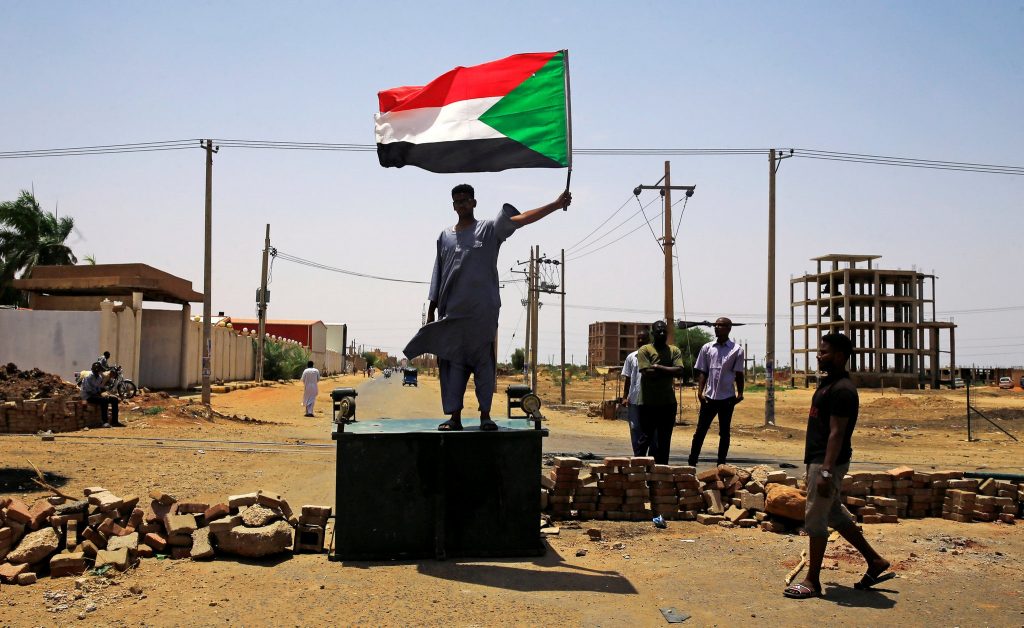American engagement will be needed to ensure a peaceful transition to democratic rule after three decades of dictatorship.

When a dictator falls to popular wrath, it is often the case that his cabal lies low until the field is clear again. It may be the generals or the secret police or the family; they will renounce their fallen leader to appease the protesters, but as soon as it is feasible they reimpose authoritarian rule. This is what the generals are trying to do in Sudan, and this is what American officials there to mediate a peaceful transition to democratic rule should endeavor to prevent.
The Sudanese who took to the streets in December, initially to protest rising food prices, were jubilant when the military finally ousted Omar Hassan al-Bashir in April, ending his three-decade reign of kleptocracy and terror. But they were aware of what had happened in neighboring Egypt, where the military came back to power after the Arab Spring uprisings of 2011. So when the Sudanese generals announced that a Transitional Military Councilhad been formed to wield power until elections could be held, the protesters stayed put outside army headquarters, demanding that civilians be put in charge of the transition.
When weeks of tense talks between protest leaders and the generals finally collapsed, the army cracked down. A paramilitary unit with roots in the fearsome janjaweed, the militias accused of genocide in Darfur, waded into the protesters’ camp on June 3, killing dozens and wounding hundreds. Many bodies were dumped into the Nile to conceal the death toll. The dispersed protest leaders then called a general strike.
The sides backed off this week, evidently in response to diplomatic efforts by American envoys. On Tuesday, protest leaders called off the strikes and agreed to resume talks with the military council. Then on Thursday, a spokesman for the military council acknowledged that the military had ordered the violent dispersal of the sit-in in Khartoum, “but we regret that some mistakes happened.” The spokesman still blamed the protesters for the breakdown in talks, and reiterated that a majority of the members of the transitional council should be military men.
Still, talks are resuming. The American officials dispatched to Khartoum to seek a peaceful solution to the crisis — Donald Booth, a veteran Africa hand newly appointed special envoy to Sudan, a position he held under the Obama administration, and Tibor Nagy,the assistant secretary of state for Africa — have met with the protesters’ umbrella organization, the Alliance for Freedom and Change, and with the head of the military council, Lt. Gen. Abdel Fattah al-Burhan.

This is the right role for Washington to be playing. The United States has poured billions of dollars in humanitarian aid into Sudan while keeping the country on the list of state sponsors of terrorism, which blocks urgently needed investment. This gives Washington considerable leverage in mediating a genuine transition to democracy now that Mr. al-Bashir is gone, and an obligation to ensure that this is not hijacked by the military.
But the generals have powerful supporters in Saudi Arabia, the United Arab Emirates and Egypt, all led by authoritarian regimes that are fiercely opposed to “people power” rising in Khartoum — and all regarded as allies by President Trump.
General al-Burhan and his deputy, Lt. Gen. Mohamed Hamdan Dagalo, the feared leader of the forces that crushed the protesters’ sit-in, have been directly involved in the Saudi-led war in Yemen. Days after Mr. al-Bashir’s fall, the Saudis and Emiratis approved $3 billion in aid to Sudan to strengthen the military council. The Sudanese protesters are well aware of these links — one of their chants has been “Either victory or Egypt.”


